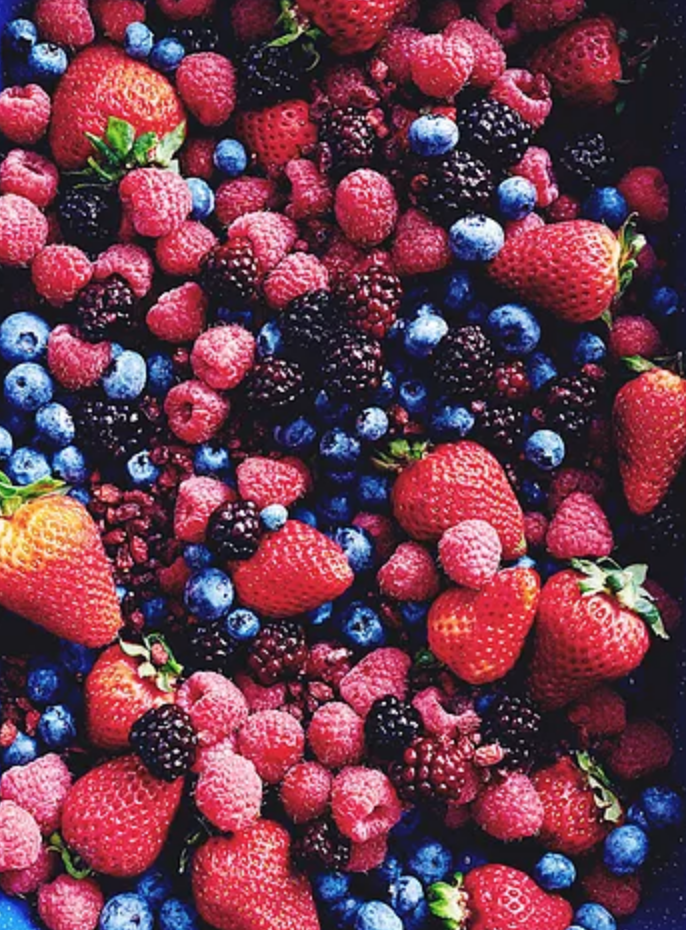Nutrition Tips for Dancers
With the start of another dance season well underway, how many of you are thinking about the best way to fuel your body for optimum performance? Today, I'm thrilled to share a guest post from Tannis of Fit, Freckled, Fed on her five favourite nutrients for peak performance in dancers. Have a read and see how easy it is to start incorporating some of her tips into your daily nutrition plan.
Once upon a time, back in nineteen-ninety-something, my journey as a full-time dance student was just beginning. My days were spent eagerly constructing pirouette-proof buns, obsessively perfecting sassy Janet Jackson inspired routines, and of course, devouring grab-and-go type meals in the spare moments in between. You see, back then my dance-centric schedule was tight, so convenience was king when it came to mealtime. I was an athlete fuelled with the likes of instant noodles and juice boxes, and I never really thought twice about how nutrition could influence my performance.
Fast forward to the present day: I’m now a Certified Nutritional Practitioner who is all too familiar with the intimate relationship that exists between diet and training. I’ve come to learn that nutrition has the power to positively impact nearly every aspect of a dancer’s performance, including their ability to build strength in the studio, heal from injury, and mentally thrive in high-pressure situations like exams or competitions. A well-balanced intake of fresh, nutrient-dense, quality foods is one of the best tools a dancer can use to support and enhance their craft, so today I’m sharing my five favourite nutrients for peak performance. Read on to learn more!
Omega 3s
Omega 3 Fatty Acids, like those found in fish oil, are one of the best types of nutrients an athlete can get their hands on. Not only do they have the power to reduce inflammatory compounds produced in response to overuse and injury, but Omega 3’s also pack a potent anti-inflammatory effect, ideal for supporting tissue repair following a long day of training. The best sources of this wonder-nutrient are cold water, fatty fish like wild salmon, sardines, and anchovies. Try serving these atop a seasonal salad, or on their own with a side of roasted root veggies, and start reaping the delicious, performance-enhancing benefits of Omega-3’s today.
Magnesium
Magnesium is required by nearly every cell in the human body. While vital to bone health, muscle contraction, and energy production, a deficiency in this mineral can contribute to cramps, fatigue, and even anxiety. (Easy to understand why this nutrient is crucial for dancers, isn’t it?) Magnesium-rich foods like dark leafy greens and seeds are truly delicious, and simple to incorporate into meals. Toss a handful of spinach into smoothies, sprinkle pumpkin seeds on soups and salads, or serve sautéed Swiss chard as a tasty side-dish in order to get your daily dose.
Antioxidants
Activity and exercise place a degree of cellular stress (better known as “oxidative stress”) on any individual; however, due to their intense training schedules, competitive dancers are faced with the challenge of managing more stress than the average person. Antioxidants, like those found in bright coloured fruits and vegetables, are valuable nutrients that prevent and repair cellular damage caused by strenuous physical activity. Vitamins A, C, and E are all powerful antioxidants and are available from the brightest and most beautiful foods such as carrots, bell peppers, oranges, and berries. A great rule of thumb for getting enough antioxidants in your diet is to decorate your plate with a minimum of three different colours at every meal.
Water
Hydration has a profound effect on any athlete’s performance. Good old H2O is largely responsible for lubricating joints, regulating body temperature, and even transporting oxygen via the bloodstream. From warm studios, to demanding routines, there are a multitude of factors that put dancers at risk of dehydration. Sipping on water before, during, and after class is of the utmost importance. In cases of extreme sweat loss, electrolyte imbalances may be a concern. Avoid those questionable sports drinks filled with artificial colours and preservatives though, and reach for some electrolyte-rich coconut water (aka “Nature’s Gatorade”) to quench your thirst.
B Vitamins
B Vitamins, particularly B5 and B12, are star players in terms of energy production and recovery. Vitamin B5 is an incredible stress-busting vitamin that combats fatigue, and aids the body in breaking down carbohydrates and fats for energy. Vitamin B12 not only increases energy, but is also essential to the formation of oxygen-carrying red blood cells. B Vitamins can be found in a variety of whole grains such as brown rice and quinoa, but the richest and most usable sources for the body are from free-range, pasture raised animal products like poultry and red meat.






